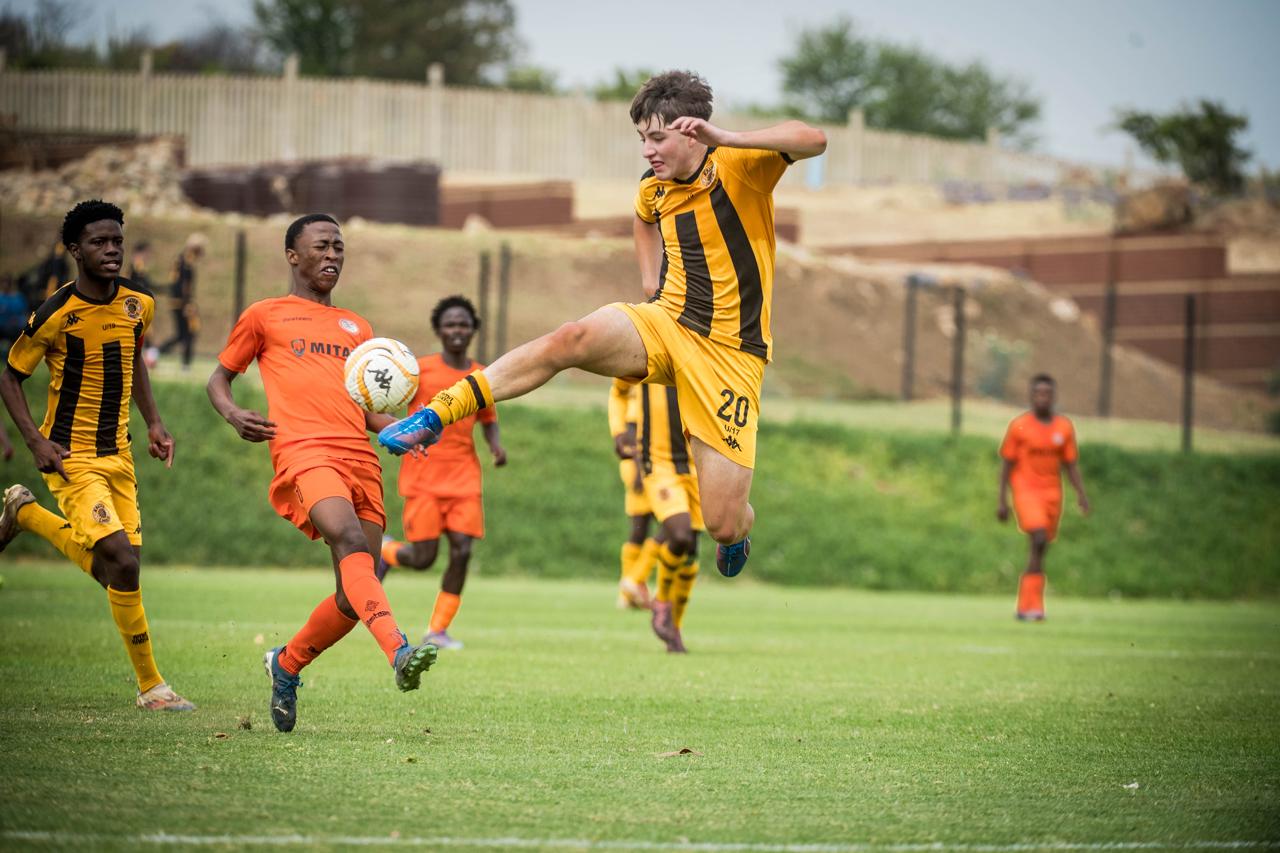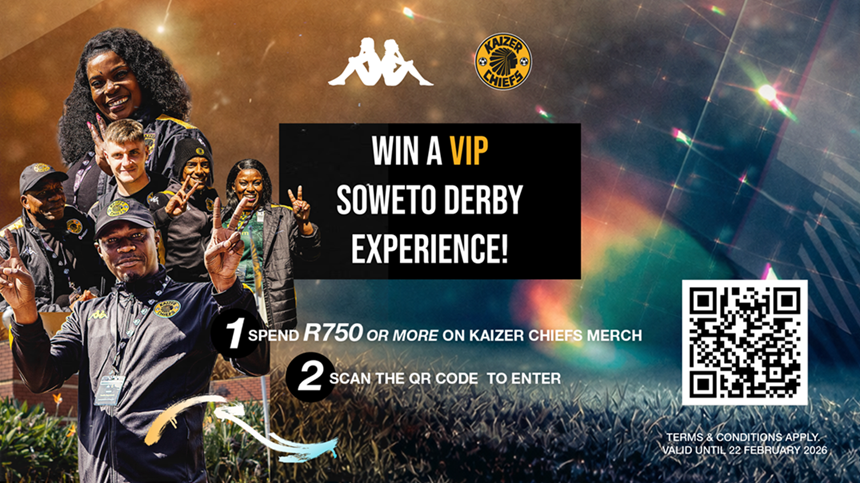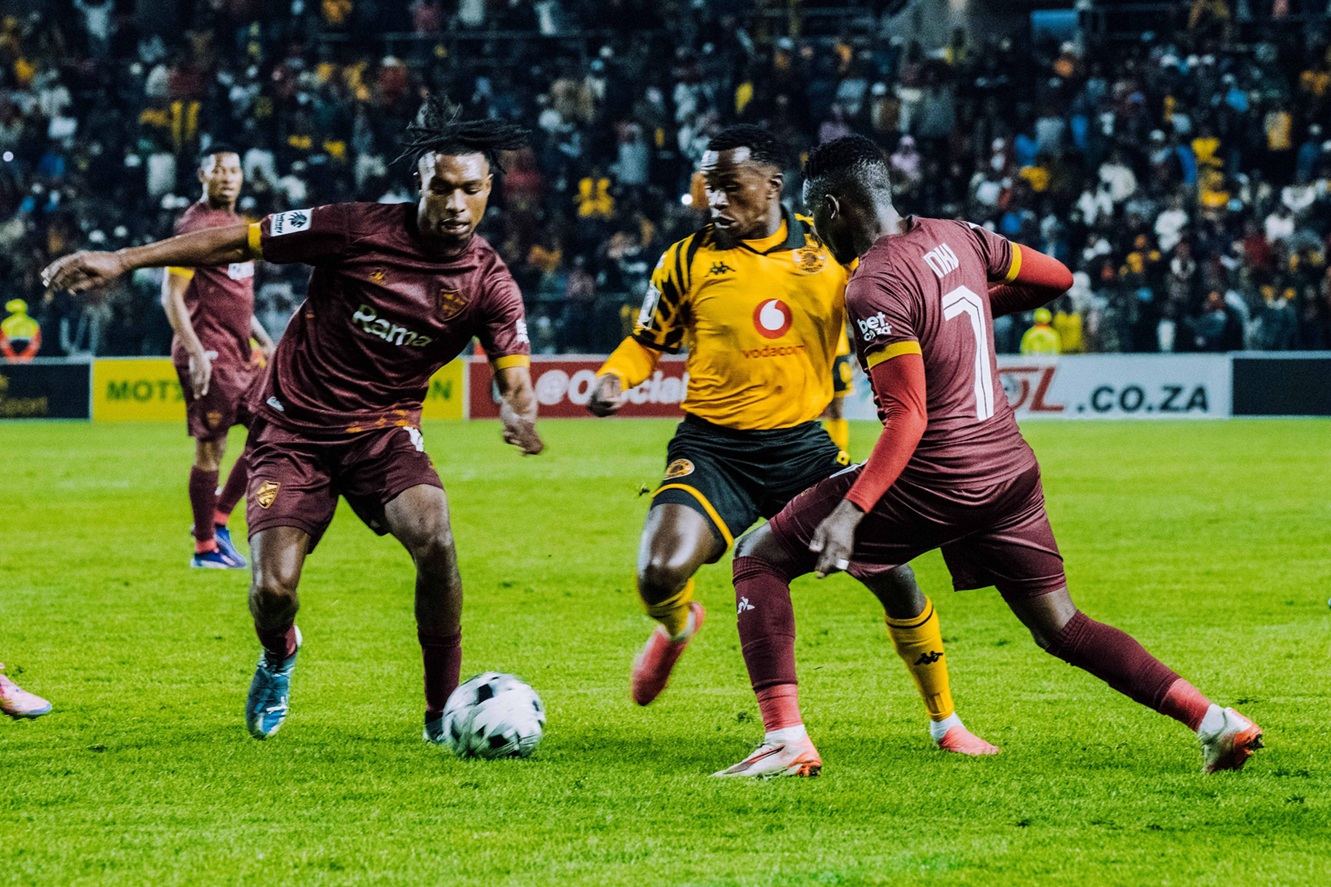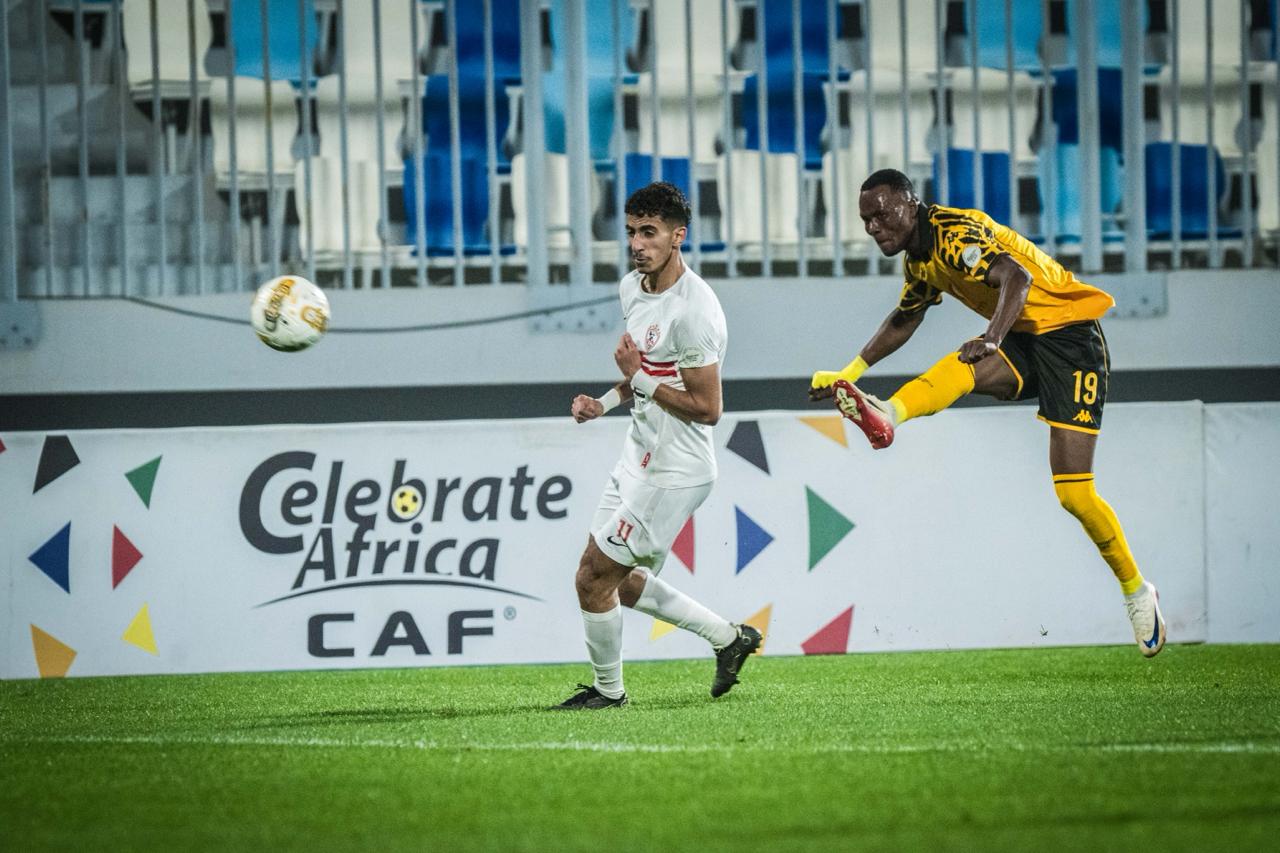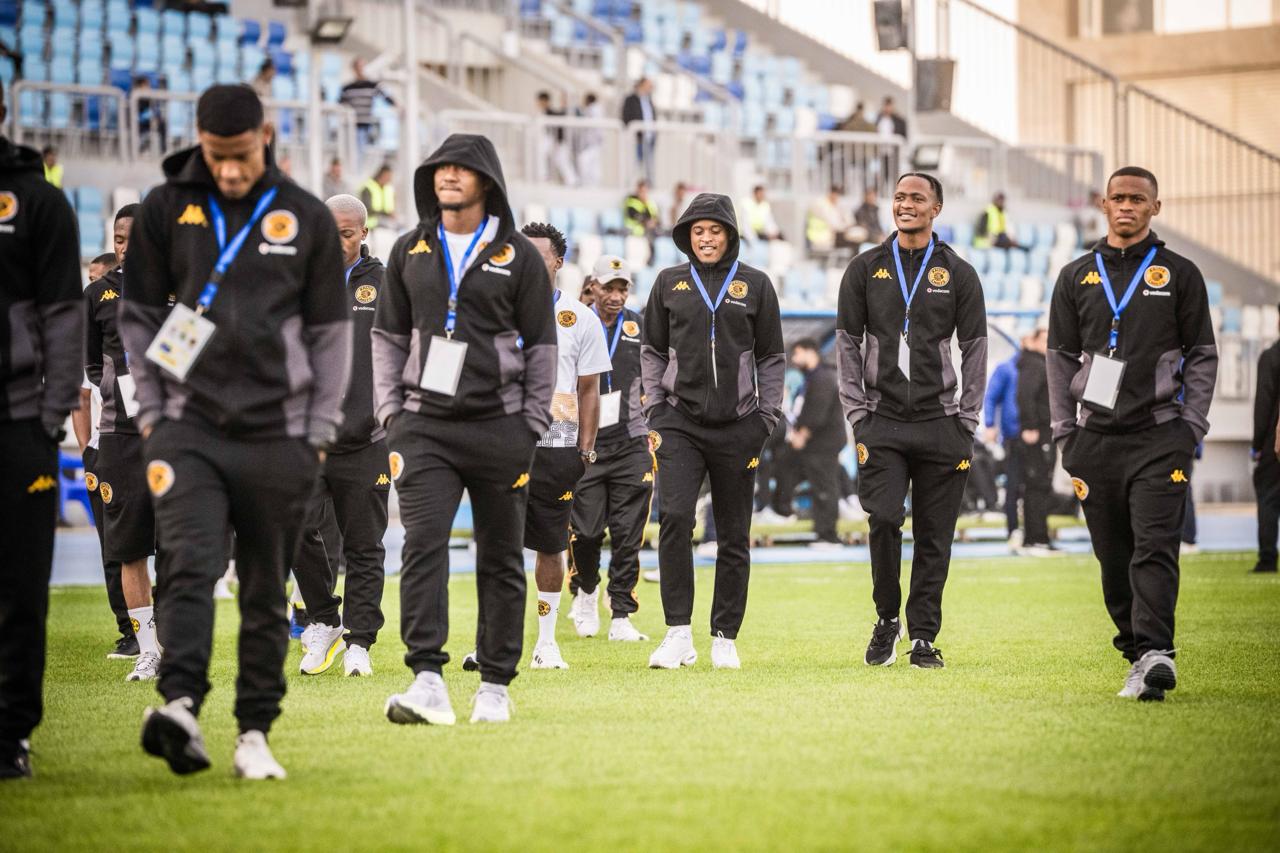Posted in News on Mar 10, 2004.
In that period the ingredients were there for league success - sound administration, financial security and access to the top players in the country, but what was missing was the right coach, someone who could pull all the individual positives together into a winning whole.
The options for Motaung were endless, including various top overseas coaches, but he turned to a veteran of the local game - Ted Dumitru. Motaung believed in the Romanian-born coach’s ability to create a winning formula. After eight months in charge, Dumitru has already vindicated Motaung’s belief in him.
One cannot fathom what would have become of Ted Dumitru - the footballer, had it not been for a serious knee injury at the age of 17, which brought a premature end to his playing career. ‘The Professor’ used the adversity to his advantage, seeing it as an opportunity to study more about the art of football and developed a number of training concepts that are now widely used throughout the world.
After completing his academic qualification with distinctions in sport psychology and soccer physiology at the Institute of Sports in Romania, Ted mastered coaching and became the youngest coach to succeed in the Romanian National League with the University of Craiova FC in the late 1960s.
From there he embarked on a 35-year coaching career, which has seen him criss-cross the globe to fulfil various coaching assignments.
Six of those years have been spent here in South Africa, and his record is impressive, to say the least, having won 12 major Cups, two consecutive League Championships with Sundowns and guided ‘the Brazilians’ to the 2001 African Champions League final.
With his vast knowledge of the game on the African continent, his choice as head coach gives an insight into Motaung’s thinking - that Dumitru is here not only to lead the team to local glory but also to guide them in the African Champions League campaign that Chiefs will qualify for should they win the league Championship.
While that might be Dumitru’s thinking for next year, he has his feet firmly on the ground and knows that a tough second half of the season awaits, and that he will have to keep the likes of Ajax, Santos and Pirates at bay to end the 12-year league drought.
Was it a difficult decision for you to accept an invitation to return to Chiefs?
Not at all. I was already booked for an international coaching course in Malaysia at the time, but when the need arose I had to cancel and apologise. I do have this love for Kaizer Chiefs. I enjoyed the times I had here in the past, and I’m thrilled to be part of such a professional operation.
What was your mandate?
Initially, they said we have to become league champions in the next few years, but I did not agree with that objective and I said we needed to win everything. The moment you separate winning objectives then players will get the wrong message and we are trying very hard to win everything. The Peace Cup in South Korea came too early for us to challenge for it, but coming home we have won three Cups, and that has allowed us to develop a winning culture among the players - something that is very important when you are trying to win the league.
Would you remain on after winning the Championship?
I still have two important projects that I have to attend to. One is the promotion of my book. According to the publishers, there must be a period where I concentrate on local and international promotions of the book. Secondly there are coaching courses - based on the new training concepts - that are on hold. The question of how I’m going to juggle these things I have no idea at this stage, but with the help of management here we will come up with a plan because I would like to win the African Champions League with Chiefs. But we are getting ahead of ourselves here. We have to win the league title first.
Who are your threats in the Championship race?
There are a number of teams who are capable of winning the league this year. According to my philosophy the league race can change overnight. You can have a situation for instance where Paul Dolezar comes in, starts using the right combinations and all of a sudden Sundowns are a threat. Anything can happen so it is best to concentrate on what we are doing.
Do you have enough depth in the squad to win it?
Yes. That was part of my plan - to create a very strong squad because I knew we would have a lot of games, outside of the league programme to play. There is a need for us to get an additional striker because strikers can easily and unexpectedly drop form and you have to have replacements ready when that happens. In the other departments we are fine.
Winning the Coca-Cola Cup must have been a great boost to the players’ confidence?
It was a great tournament - filled with excitement and controversy - but we came through as the best team.
In terms of the opposition, I think Wits was a tough assignment, but made the mistake of trying to use the media as a psychological weapon against us. I don’t think they were that tough as we were far superior to them. The Santos game was probably our toughest as we needed a golden goal to get through.
How did the players respond to your coaching methods when you first arrived?
I think they were hungry for something new. They were hungry for something that would allow them to fulfil their ambitions. Most of those ambitions related to their own style of play and their own mentality. Every player at Kaizer Chiefs has a strong drive towards fulfilling his abilities or his talents.
If the training environment is not conducive to that, frustration sets in and I found that some of them were frustrated. For years they had been subject to the imposition of some strict European concepts of training, which they were rejecting. I think things were different with the new approach and there was an instant acceptance.
Do they understand your philosophy?
Yes, they do understand. What I am asking for is not something complicated. It’s something that perfectly identifies with their nature. For instance, if I say we cannot only play one-touch football they quickly understand why.
There is this rigid idea that if you don’t play one-touch football you can’t play competitive football. That’s wrong. The philosophy has allowed them to understand the game in a different way, and I think that was what caught their attention from the beginning.
You haven’t used one keeper consistently since the start of the season. Is this an indication that you are still trying to find your number one goalminder?
It will be totally unfair to label Brian (Baloyi) or Rowen (Fernandez) as number one, number two or reserve keeper. They are equal. We are extremely fortunate to have such quality in the goalkeeping department. They share a lot of the same qualities and values, but they also have individual problems here and there. Tactically they both understand the way we play. They both manage to control and direct the defence equally well. As long as they don’t drop form I will continue to rotate them.
Kabamba Musasa and David Radebe seemed to be developing a deadly combination last season but you have gone with different attacking options this season...
Teams are constantly studying the way we play. To some degree the opposition managed to figure out how those two strikers operated.
For instance David liked to receive the ball, run free and eventually face the keeper in a one-on-one situation. He believed that his pace was his best weapon.
Defenders have learnt how to play against players like David and they know that his approach is direct. When we tried different things in South Korea we learnt some lessons and he appeared to struggle against experienced defenders. We then designed a programme where he would concentrate on certain aspects of his game, particularly the short pass combinations to give him more variety.
Musasa is almost in the same situation but with different reasons in that he is one-footed. And if you are an experienced defender you will know what he is likely to do when he has the ball. As we grow in phases we need players to be more versatile. Fortunately both are responding very well in training and we are going to see some positive improvements.
Overall are there any weaknesses that you are still trying to correct in the team?
Some things I cannot elaborate on. But in general our players are trained to respond to both attack and defence situations regardless of their positions and they are still coming to terms with that. For instance when you see David Kannemeyer getting involved in an attack, that’s part of his job and it’s not something he’s done accidentally. He needs to be comfortable doing that.
What challenges are you still working on?
We as professional coaches, particularly those who are trying to look at the culture and style of South African football, have great difficulties in that basic development does not exist in South Africa. Players are not coming through to the senior ranks from the junior levels.
We do have development programmes across the country, but some bad influences ensure the players are not ready for professional football. We have ‘exceptional players’ coming to trials, but once they join the squad they find themselves in a handicapped situation where they don’t have the basic tools of football to compete with the professional players. That makes our jobs extremely difficult.
As long as we don’t accept the fact that we need to train them differently and develop certain unique aspects of their game, we are not going to succeed in producing players that are ready for professional football. It is a task which will challenge us all in the next few years.
Amakhosi Magazine is on sale every month. Look out for the latest edition that has just been released.

